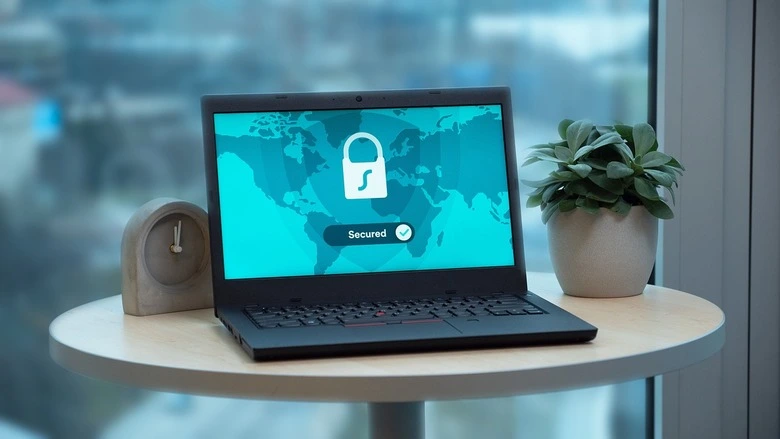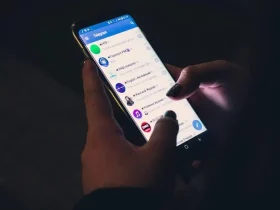In an age when our lives are inextricably linked to the digital sphere, the importance of internet security cannot be emphasized. The ever-expanding array of cyber risks, ranging from data breaches to identity theft, has prompted a fundamental question: Does VPN protect you from hackers? This detailed guide takes you on a journey to discover the various layers of VPNs and their potential usefulness in protecting individuals from hostile cyber activity.
In this article, you will get the necessary information about VPNS including VPN disadvantages and advantages. Whether you’re a cybersecurity newbie or a seasoned digital veteran, learning about VPNs will surely prove essential in an age where protecting your digital presence is non-negotiable. Keep reading to find out if ‘does VPN protect you from hackers or not.’

Table of Contents
Does VPN Protect You From Hackers?
So does using a VPN prevent hacking? Yes, adopting a Virtual Private Network (VPN) helps improve your security against hackers and other cyber threats. A VPN establishes a secure encrypted tunnel between your computer and a remote server, effectively hiding your online activities and considerably increasing the difficulty for hackers to intercept your data. Here’s how a VPN can help keep you safe from hackers:
Encryption
A VPN encrypts your internet traffic, ensuring that even if hackers acquire your data, they will only view encrypted data that would be extremely difficult to decode without the decryption key.
Anonymity
When you connect to a VPN server, your true IP address is disguised, and you appear to be using the VPN server’s IP address. This makes tracing your internet actions back to you challenging for hackers.
Public Wi-Fi Security
Using public Wi-Fi networks, such as those found in coffee shops or airports, can put you at risk of being hacked. VPNs encrypt your connection, preventing hackers from exploiting flaws in these unsecured networks.
Bypassing Limits
While not directly related to hacker protection, VPNs can assist you in bypassing geographical limits and accessing content that may be prohibited in your region, lessening the danger of encountering malicious websites as a result of such restrictions.
Preventing Data Interception
Hackers can intercept your data as it travels between your device and websites using techniques such as “man-in-the-middle” assaults. VPNs lessen this risk by encrypting your data, making eavesdropping exceedingly difficult.
So the short answer to does using a ‘VPN prevent hacking?’ is ‘Yes.’ However, it is crucial to realize that, while VPNs add an extra layer of security, they are not a cure-all. They cannot protect you from all forms of cyber risks, particularly if you engage in dangerous online behavior such as downloading files from unknown sources or clicking on questionable links.
Advantages and Disadvantages of Using a Vpn
Let’s get into the advantages and disadvantages that you will face when using a Virtual Private Network.
VPN Advantages:
- Bypassing Geo-Restrictions
By connecting to servers in other countries, VPNs enable you to access content that may be restricted or blocked in your region.
- Secure Remote Access
VPNs are frequently used by businesses to enable secure remote access to internal networks for personnel working from outside the office.
- Enhanced Security
VPNs encrypt your internet traffic, increasing security and privacy, especially when using public Wi-Fi networks or browsing in countries with tight censorship.
- Privacy Protection
By masking your IP address and online actions, a VPN makes it impossible for websites, advertisers, and even your Internet Service Provider (ISP) to trace your online activity.
- Anonymity
VPNs can give some anonymity, making it more difficult for others to trace your online activities back to you.
- Protection of Public Wi-Fi
VPNs encrypt your data on public Wi-Fi networks, protecting your sensitive information from potential hackers on these unsecured networks.
- Avoiding Throttling
Some internet service providers can purposefully slow down your internet connection for particular activities (such as streaming). A VPN can assist in circumventing this throttling.
- Secure Online Transactions
VPNs offer an encryption layer to online transactions, making them more secure, which is especially crucial when using credit cards or making financial transactions.
VPN Disadvantages:
- Reduced Speed
Because of the encryption and routing processes involved, VPNs can cause your internet connection to slow down. The amount of speed degradation is determined by the VPN provider and server location.
- Cost
Premium VPN services frequently charge a monthly or yearly subscription fee, which may be an additional cost.
- Complexity
For some users, setting up and using a VPN may be difficult, resulting in compatibility and connectivity concerns.
- Trust in VPN Providers
In order to utilize a VPN, you must have faith in the provider with your data. Some free VPN providers may keep track of your online activities or threaten your privacy.
- Blocked Services
Some websites and services can block access from VPN IP addresses, requiring you to disconnect from the VPN in order to use them.
- Malicious VPNs
There is a chance that you will come across false or malicious VPN services that will compromise your security rather than improve it.
- Concerns about Legal and Jurisdiction
Depending on the country of the VPN provider’s jurisdiction, they may be subject to data retention laws or government surveillance, thus compromising your privacy.
- Limited Performance for High-Data Activities
Due to potential performance reductions, VPNs might not be optimal for bandwidth-intensive activities such as online gaming or high-definition video streaming.
What Does a Vpn Not Protect You From?
While a VPN is a useful tool for improving online security and privacy, it does not provide total protection from all cyber threats. A VPN will not protect you from harmful downloads, phishing scams, or visiting compromised websites. It cannot also protect you from malware infestations if you engage in dangerous online behavior.
Furthermore, if you are signed into your accounts, a VPN will not totally protect you from tracking by online services or ads. Remember that a VPN can hide your IP address but it cannot protect you against targeted assaults or hacking attempts that can cause weaknesses or vulnerabilities in your device or network.
FAQs
What will a VPN not protect you from?
VPN has various benefits for online security and privacy, but there are several things that a VPN will not protect you from:
1. Phishing Attacks
2. Malware and Viruses
3. Social Engineering
4. Weak Passwords
5. Data Leaks from Apps
Can you still be hacked while using a VPN?
Yes, it is theoretically possible to be hacked while using a VPN, although a VPN does provide an extra layer of security and privacy that can make hacking more difficult.
Conclusion
Many people were asking the question ‘Do VPNs protect you from hackers?’ Virtual Private Networks (VPNs) surely serve a critical role in increasing our defense against hackers in the ever-changing environment of cybersecurity. VPNs provide a formidable barrier against many cyber threats by encrypting our internet traffic, concealing our IP addresses, and offering a secure online gateway.











Leave a Reply